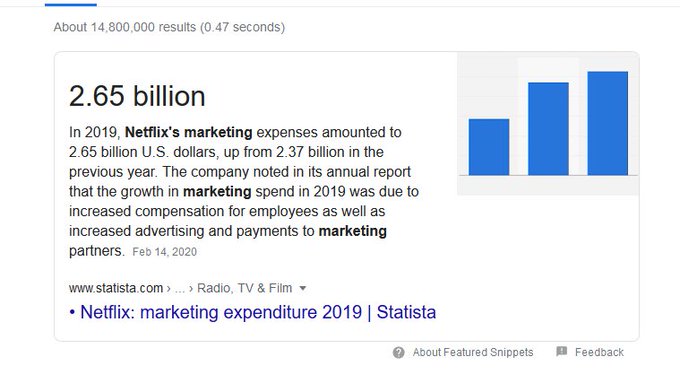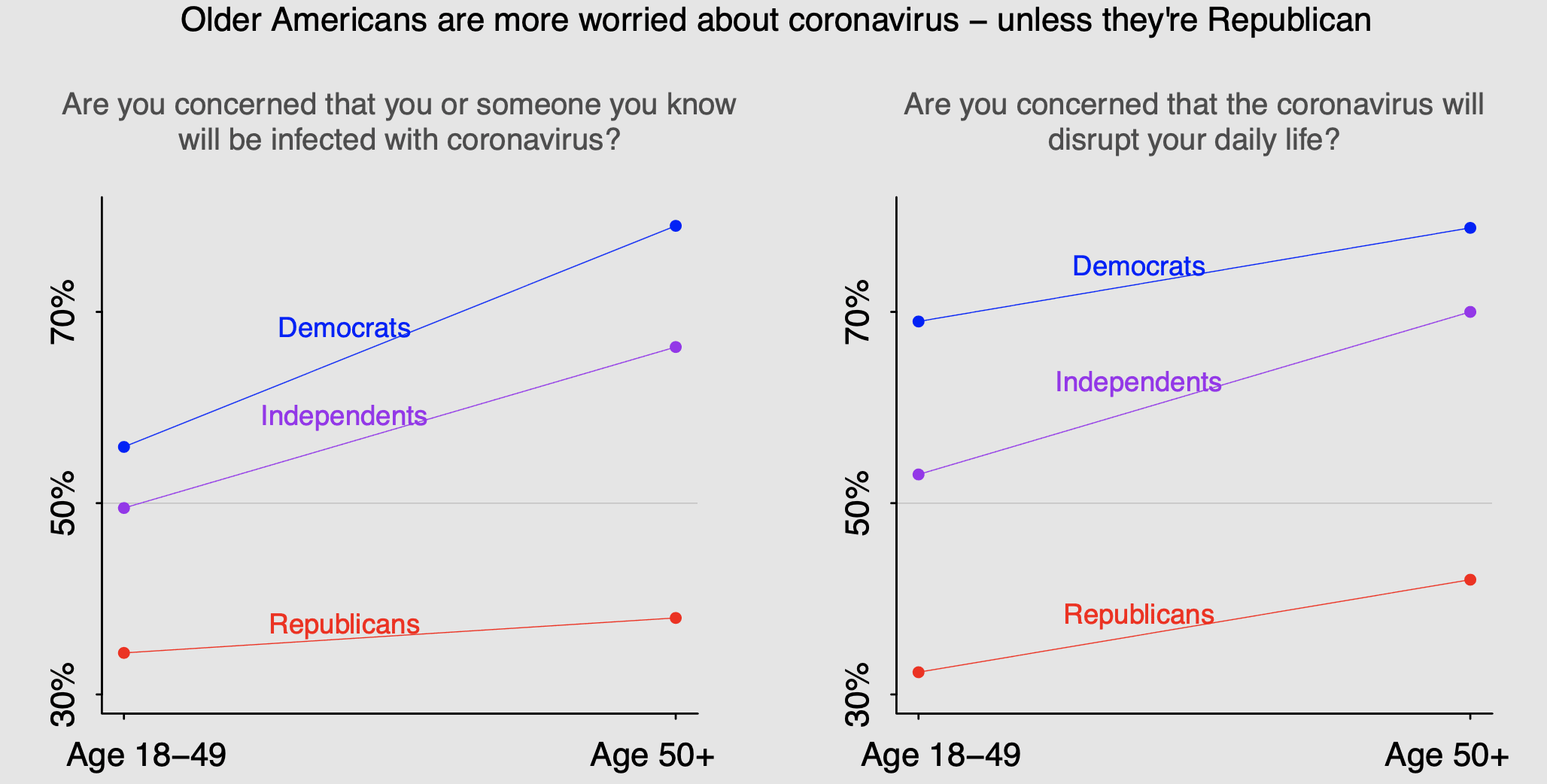And while we're on the subject...Sigh. *Indoor* transmission is driving this epidemic. Harder to get nice pictures (especially safely), but that's what we need people to imagine when they think of COVID risk https://t.co/wC0eUJ09Mj— Brendan Nyhan (@BrendanNyhan) August 2, 2020
Ventilation in July is like masks in March. There's accumulating evidence AND many practical steps to take. Some are within our reach for free or cheap, and we should prioritize the expensive ones. Instead, we're stuck, without guidance. Let's change this. https://t.co/1j4KnrCugU— zeynep tufekci (@zeynep) July 30, 2020
Our weekly reminder that the economy did better in places that didn't prioritize the economy over containing the virus.
A failure to beat the coronavirus has a chilling effect on economic activity.— Bloomberg Opinion (@bopinion) August 2, 2020
Just look at the extraordinary difference in the return to restaurants in Germany and the U.S. https://t.co/8OMCTwLsok pic.twitter.com/NigrpXSxmt
This is as bad as it looks.
Having spent most of 2013-2017 in states that voted Red, I can tell you:— James Fallows (@JamesFallows) August 2, 2020
Literally no one there was thinking, “Yeah, what I’d really like is to destroy the US postal system.”
In important ways, the Post Office is America. (Just ask Ben Franklin.)
I am a USPS fan, and live in an upscale part of DC. But we, too, are getting mail only every-so-often. The slow-but-accelerating squeeze being put on USPS really has to be reversed. https://t.co/rIoqtSswz3— James Fallows (@JamesFallows) August 2, 2020
None of it is hyperbole folks. Trump and the toady he installed are literally trying to sabotage the us postal service, an almost 250 year old institution. https://t.co/GkHZRrbUTu— Josh Marshall (@joshtpm) August 3, 2020
Good Krugman thread
30 million workers have had their financial lifeline cut off, and talks are stalled. But this isn't because "Congress" is dysfunctional; it's because *Republicans* are wedded to nonsense economics 1/ pic.twitter.com/C6Lu334G4U— Paul Krugman (@paulkrugman) August 2, 2020
But even if it were happening, we have 30 million workers receiving benefits and only 5 million job vacancies. What jobs would workers take if they wanted to work? 4/— Paul Krugman (@paulkrugman) August 2, 2020
Our neighbor to the east.
“If you don’t have an underlying health condition, it’s safe out there,” Gov. Doug Ducey told Arizonans in late May, hoping to stimulate the economy. Those words were also a death sentence for Dad, a healthy and exuberant 65-year-young man ...” https://t.co/7RCkM8LL9J
— Ronald Brownstein (@RonBrownstein) August 2, 2020
Arizona schools must re-open for in-person learning on August 17 or they lose 5% of their funding. What that looks like in a rural AZ district where 1 teacher has died & 4 others are infected https://t.co/yBUAkkqwr4— Jennifer Berkshire (@BisforBerkshire) August 2, 2020
Fallows lays it out.
To put this in context, for people who have not worked in presidential campaigns:— James Fallows (@JamesFallows) August 2, 2020
Chris Wallace’s (good) question is the equivalent of, “would you rob a bank” or “would you lie to cover up a felony.”
The *only* appropriate answer is flat and immediate “No.”
Until now. https://t.co/djwieab5QA
There is no way to reconcile Tesla's valuation with a competitive EV market, particularly in Europe, but somehow news like this never seems to hurt the stock.
"The sedan will have a more than 700km range and is expected to "set the benchmark" in terms of luxury."$TSLA $TSLAQ— Wolfgang Pipperger (@WPipperger) August 2, 2020
Mercedes EQS to have more than 700km range - Autocar India https://t.co/YVOUB608B8
Brutal Tesla thread
1/ Tell me, why would anyone pay $57,190 for a $tsla Model Y? Here's the review; let's summarize:https://t.co/j4mWdVvcOt— Montana Skeptic (@montana_skeptic) August 1, 2020
Wages of Strauss, again
— Mark Palko (@MarkPalko1) August 2, 2020
There is something tiring about this kind of layered stupidity.
the Evolution Understander™ has logged on https://t.co/Jp9Q39yJha— uphold shi zhiyong thought 🇨🇳 (@koaleszenz) August 1, 2020
The dominance of the NYT is not good for journalism or democracy. (and yes, I'm an LA Times subscriber)
Fascinating fact: "The New York Times has more digital subscribers in Dallas–Fort Worth than the Dallas Morning News, more digital subscribers in Seattle than the Seattle Times, more digital subscribers in California than the LA Times or the Chronicle." https://t.co/3suqwB8i8I— Mathew Ingram (@mathewi) July 31, 2020
When a party internalizes the lies it's been telling.
as virus resurgence stalls recovery, GOP largely believes there isn’t much for govt to do:— John Harwood (@JohnJHarwood) July 31, 2020
“A strategy for the economy?” asked IN Sen Young. “That’s not how economies work. Growth is created by innovators/entrepreneurs/workers based on supply and demand” https://t.co/HPzraU0cC2
I've long harbored the suspicion that Marc Andreessen isn't actually that bright.
God help us all - Jared kushner, his college roommate and marc andreessen have been managing covid response https://t.co/qGvyVsS6r8— Kombiz Lavasany (@kombiz) July 30, 2020
Yeah...
This didn’t age well. Of course, it didn’t start well, either. https://t.co/FuG6KSvkd3— Paul Farhi (@farhip) August 1, 2020
The bizarre logic of owning the libs.
“Clever” https://t.co/PAoR7l3QWi— Rick Wilson (@TheRickWilson) July 30, 2020
I started to make a joke about this about this but decided it would gilding the lily.
Maybe just do the opposite of what this guy says? https://t.co/oC3aM0nxzu pic.twitter.com/QFUDeJYSJC— Jonathan Chait (@jonathanchait) August 3, 2020
Cool
Cities of the world at the beginning of the 20th century (and end of 19th century) Thread/Fil/Hilo #DeOldify Thank you @citnaj— Joaquim Campa (@JoaquimCampa) April 17, 2020
1. New York City 1911 part. 1 pic.twitter.com/lq75O8r8mu









